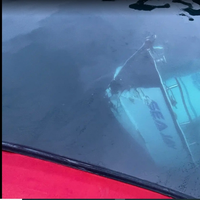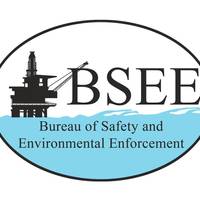Salvors Raise Fishing Vessel That Sank Near Santa Cruz Island

A salvage team has refloated a charter fishing vessel that sank near California's Santa Cruz Island.Overseen by the U.S. Coast Guard and the California Office of Spill Prevention and Response (OSPR), the salvage operation included underwater assessment, refloating, stabilization and the safe transfer of the vessel to harbor. The operation was led by a seasoned salvage master and supported by a crew of four experienced salvage technicians and divers.Two dedicated recovery vessels equipped with lift bags, dewatering equipment and custom rigging were brought in to handle the vessel recovery.
BSEE Targets $7 Million Investment in Oil Spill Response Research

The Bureau of Safety and Environmental Enforcement (BSEE) announced that it is soliciting proposals for oil spill response research projects and will be investing up to $7 million to support these projects in 2014. In a Broad Agency Announcement released on the federal governments business opportunities website, FedBizOpps.gov, the bureau called for white papers focusing specifically on one of 10 topic areas for proposed research covering oil spill response operations on the U.S. Outer Continental Shelf.
USCG Issues Fines for Tank Response Plan Noncompliance
The Coast Guard has issued monetary penalties to three vessel operators in violation of federal regulations related to tank vessel response plan requirements. The vessels Pacific Galaxy, operated by Synergy Maritime PET, Tamar, operated by MTM Ship Management, and Yayoi Express, operated by MOL Tankship Management, have been issued a monetary violation for noncompliance with Title 33 Code of Federal Regulations Part 155 Subpart D in Alaska. Vessel operators can face penalties of up to $11,000 per violation, per day. Tank vessels bound to or from a U.S. port and transiting through the Western Alaska Captain of the Port zone must have…
Tank Vessel Response Plan: Alaska Violators Fined
The vessels Pacific Galaxy, operated by Synergy Maritime PET; Tamar, operated by MTM Ship Management, and Yayoi Express, operated by MOL Tankship Management, have been issued a monetary violation for non-compliance with Title 33 Code of Federal Regulations Part 155 Subpart D in Alaska. Vessel operators can face penalties of up to $11,000 per violation, per day. Tank vessels bound to or from a U.S. port and transiting through the Western Alaska Captain of the Port zone, remind the US Coast Guard, must have an approved geographic specific appendix in their vessel response plan for Western Alaska prior to transiting or operating within the COTP zone if carrying oil in bulk as cargo or oil cargo residue.
Spying Oil Spills from Space
The Australian Maritime Safety Authority (AMSA) is trialing the use of satellites to detect oil spills in Australian waters. Satellite-based Synthetic Aperture Radar (SSAR) can identify potential oil spills directly from orbit. These satellite sensors can monitor day and night, can see through cloud, rain, fog and other weather. It is one of the most effective and reliable ways of spotting oil spills and the ships that cause them. AMSA’s Acting Marine Environment Division General Manager Jamie Storrie said AMSA currently relies on other vessels, airlines or the public to report any oil spill or marine pollution. “By the time a spill is reported, the oil may have already spread to sensitive areas and the chances of catching the polluter are poor,” Mr. Storrie said.
Coast Guard, BSEE: Repsol Rig Review Complete
Personnel from the U.S. Coast Guard and the U.S. Department of the Interior’s Bureau of Safety and Environmental Enforcement completed a review of the mobile offshore drilling unit Scarabeo 9, Monday, off the coast of Trinidad and Tobago. The review followed an invitation from the vessel’s operator, Repsol. While aboard the Scarabeo 9, personnel reviewed vessel construction, drilling equipment, and safety systems – including lifesaving and firefighting equipment, emergency generators, dynamic positioning systems, machinery spaces, and the blowout preventer – in anticipation of its scheduled drilling operations in Cuba’s exclusive economic zone in the coming months. The review is consistent with U.S. efforts to minimize the possibility of a major oil spill, which would hurt U.S.






